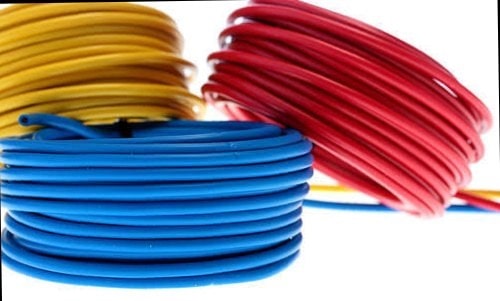The electrical wiring of your house is something you’ll rely on for years to come, so it’s always better to invest in good-quality wires. Indeed, if you go with high-quality wires, it’ll definitely reflect a lower electricity bill. People in India typically follow the advice of an electrician, which is a good thing, but you should also have a good understanding of wires to get the desired outcome of what you’re paying for. And once you head over to the market, you’ll be overwhelmed by the number of wire brands in the Indian market.
This would make it so much harder for you to decide which one is the best fit for your needs. But don’t you worry now. Here we are to save your day. We’ll be presenting some of the Best Wire For House Wiring options in India. And, because there are so many factors to consider when purchasing wires for house wiring, some of the deciding factors mustn’t be overlooked. We are certain that you wouldn’t want to change wiring every 3–4 months because of short circuits. correct? Therefore, we have also included a detailed wire buying guide, so make sure to follow all of the points listed there when purchasing wires on your own.

List of Wire For House Wiring In India
How to Choose the Best Wire For House Wiring
Now we’ll walk you through some of the important factors to look at when picking up the correct type of wire for your house wiring project.
Brand Matters
It is pretty easy to be overwhelmed by the sheer number of brands available in the Indian market for wires. We’re emphasizing this point because various brands use different quality materials for their wires. For example, if you decide to go with a brand like Havells, you’ll find their conducting materials and insulation materials are high quality. Talking specifically about the copper-based wires, then in most non-branded wires, you’ll find cheap recycled copper with higher resistance. Which ultimately results in high electricity bills and a shorter lifespan. On the other hand, with branded wires, you can expect a longer life span, and because of the good quality Virgin Copper, your electricity bills would be lower.
Size Of Wires
Wire size is measured in SqMM, which stands for Square Millimeter, and ranges from 1 sq mm to 16 sq mm, but for regular homes, usage experts don’t recommend using more than 6sqmm wires. For example, 1 mm to 2.5 mm is quite sufficient for circuits used to provide electricity for low-energy-consumption appliances and items such as bulbs, lamps, adjust fans, and small sockets. Wires of 2.5 mm in size are compatible with higher-end electricity-consumption appliances such as TVs, air conditioners, refrigerators, etc.
Conducting Material
Aluminum and copper are the most commonly used materials in house wiring. Buy copper wires, and you’ll be fine for the most part, in our opinion. But choosing the right quality of the material is as important as other factors since the material is the one that’s going to conduct electricity. Therefore, it’s always recommended to choose branded wires so you can get good quality conducting material. As we already mentioned earlier, many cheap brands use recycled and mixed copper materials, so make sure to avoid such brands if you possibly can. Always remember, the wiring of your house is something you should never compromise with because it’s not something we can replace every 3-4 months, so make a wise decision when you can.
3 Layer Safety
Weather impacts wiring a lot, and if you don’t have wires with good insulation, you’ll start to notice that after a year or so, the insulation on those wires will start to crumble. And this is how most of the short circuits occur in Indian houses. If you don’t want this to happen to your house, then focus on the 3-layer safety insulation of wires. When buying wires, look for labels such as “heat resistant,” “water resistant,” or “high-temperature resistant.”
Different Colors
The colors of wires actually have nothing to do with the quality or don’t add any special features to the wires. But still, they are as important as other aspects. If you buy a variety of colors, then it’ll help you determine which wires are used for which purpose. For example, white and green wires are used to indicate that it is a neutral wire.
Manoj Kumar, is a Service Manager at Rakesh Electronics, New Delhi. Manoj has 8 years of experience in dealing with home electronics products. Manoj is a freelance writer and share his knowledge at IndiasStuffs.com






